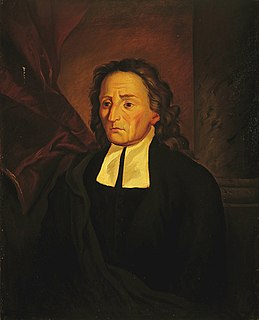A Quote by Edmund Burke
Some degree of novelty must be one of the materials in almost every instrument which works upon the mind; and curiosity blends itself, more or less, with all our pleasures.
Related Quotes
This world, this universe which our senses feel, or our mind thinks, is but one atom, so to say, of the Infinite, projected on to the plane of consciousness; and within that narrow limit, defined by the network of consciousness, works our reason, and not beyond. Therefore, there must be some other instrument to take us beyond, and that instrument is called inspiration.
Sport, properly directed, develops character, makes a man courageous, a generous loser, and a gracious victor; it refines the senses, gives intellectual penetration, and steels the will to endurance. It is not merely a physical development then. Sport, rightly understood, is an occupation of the whole man, and while perfecting the body as an instrument of the mind, it also makes the mind itself a more refined instrument for the search and communication of truth and helps man to achieve that end to which all others must be subservient, the service and praise of his Creator.
Recycling is more expensive for communities than it needs to be, partly because traditional recycling tries to force materials into more lifetimes than they are designed for - a complicated and messy conversion, and one that itself expends energy and resources. Very few objects of modern consumption were designed with recycling in mind. If the process is truly to save money and materials, products must be designed from the very beginning to be recycled or even "upcycled" - a term we use to describe the return to industrial systems of materials with improved, rather than degraded, quality.
We need not have the loftiest mind to understand that here is no lasting and real satisfaction, that our pleasures are only vanity, that our evils are infinite, and, lastly, that death, which threatens us every moment, must infallibly place us within a few years under the dreadful necessity of being forever either annihilated or unhappy.
Poetry operates by raising our curiosity, engaging the mind by degrees to take an interest in the event, keeping that event suspended, and surprising at last with an unexpected catastrophe. The painter's art is more confined, and has nothing that corresponds with, or perhaps is equivalent to, this power and advantage of leading the mind on, till attention is totally engaged. What is done by Painting, must be done at one blow; curiosity has received at once all the satisfaction it can ever have.
I look upon enthusiasm, in all other points but that of religion, to be a very necessary turn of mind; as indeed it is a vein which nature seems to have marked with more or less strength, in the tempers of most men. No matter what the object is, whether business, pleasures or the fine arts: whoever pursues them to any purpose must do so con amore.
A bird is an instrument working according to mathematical law, which instrument it is within the capacity of man to reproduce with all its movements, but not with a corresponding degree of strength, though it is deficient only in the power of maintaining equilibrium. We may therefore say that such an instrument constructed by man is lacking in nothing except the life of the bird, and this life must needs be supplied from that of man.
A thinking mind is not swallowed up by what it comes to know. It reaches out to grasp something related to itself and to its present knowledge (and so knowable in some degree) but also separate from itself and from its present knowledge (not identical with these). In any act of thinking, the mind must reach across this space between known and unknown, linking one to the other but also keeping visible to difference. It is an erotic space.
The dialectical critique of positivist habits of mind ... is interested only in behaviour which is 'important' to the actor; that is, behaviour which is emotionally charged to the degree that it is either frequently recalled, reflected upon, or day-dreamed about. ... That science which is less discriminating in the behaviour it chooses to investigate gains clarity and distinctiveness at the cost of confining itself to the trivial.
Among the innumerable mortifications which waylay human arrogance on every side may well be reckoned our ignorance of the most common objects and effects, a defect of which we become more sensible by every attempt to supply it. Vulgar and inactive minds confound familiarity with knowledge and conceive themselves informed of the whole nature of things when they are shown their form or told their use; but the speculatist, who is not content with superficial views, harasses himself with fruitless curiosity, and still, as he inquires more, perceives only that he knows less.
The moment our discourse rises above the ground-line of familiar facts, and is inflamed with passion or exalted thought, it clothes itself in images. A man conversing in earnest, if he watch his intellectual processes, will find that always a material image, more or less luminous, arises in his mind, contemporaneous with every thought, which furnishes the vestment of the thought.... This imagery is spontaneous. It is the blending of experience with the present action of the mind. It is proper creation.










































